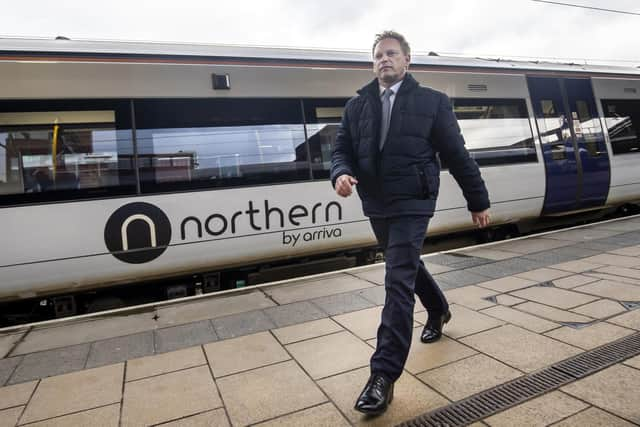Government lacking funded plan for electrifying railways to hit 2050 net zero target
The Railway Industry Association has assessed the ongoing efforts to reduce reliance on diesel-only trains and found that of 12 key recommendations made by MPs on the Transport Select Committee in March 2021, there has been good progress on three, limited progress on four and no progress on five.
It said while the recent Integrated Rail Plan did set out ambitions to electrify 750km (466 miles) of track, including as part of the TransPennine Route and Midland Mainline route upgrades, “there is no evidence of a long-term funded decarbonisation programme for the rail network”. Around 450km (279 miles) of track a year needs to be electrified to hit the Government’s net zero by 2050 target.
Advertisement
Hide AdAdvertisement
Hide AdThe review said the Government has set out “a broad timeline for the decarbonisation of the railway network” through its Transport Decarbonisation Plan and Rail Environment Policy, while a statutory duty has been proposed for the new Great British Railways body on environmental sustainability.


It said: “Further work is required to set out what actions will be taken each year to meet the net zero target in 2050, particularly around cost and delivery.”
Other recommendations which the RIA believe the Government has made “no progress” on include implementing a new financial governance mechanism to keep control of electrification costs; expanding the use of electrified ‘third rails’ which provides electric power to trains; publishing a list of top priority electrification schemes and publishing a cross-modal strategy for decarbonising freight journeys.
But the report did praise the Government’s work in setting out funding plans for research and development into decarbonisation strategies, as well as its support of a domestic battery industry to power electric trains and its efforts to promote the future use of hydrogen trains.
Advertisement
Hide AdAdvertisement
Hide AdDarren Caplan, Chief Executive of the RIA, said: “Our review shows that, encouragingly, the Government is making some progress in key areas of decarbonising the railways. It was positive to see commitment to several longer-term major electrification schemes in the Integrated Rail Plan, which will help to reduce emissions on key routes.
“However, there is concern at a lack of progress in several important areas. There still needs to be a much more ambitious programme to electrify the railways, starting now if the Government is to hit its own electrification targets by 2050; and significantly more progress on rolling out battery and hydrogen trains, to build on investment in these technologies from the private sector.
“So, whilst the Government is heading in the right direction it needs to accelerate the decarbonisation of the railways, if it wants the sustainable, world-class network it says it does to serve the UK, its economy and its connectivity.
“Doing so not only helps drive long-term growth right across the country but also, supports thousands of skilled jobs and significant investment right now, at a time of uncertainty and economic turbulence.”
Aim to stop diesel trains by 2040
Advertisement
Hide AdAdvertisement
Hide AdThe Government’s Transport Decarbonisation Plan set an ambition to remove all diesel-only trains from the nation’s railway network by 2040.
A Department for Transport spokesperson said: “We continue working towards delivering a rail network that is cleaner, greener and fairer to taxpayers, while boosting opportunity right across the country.
“Our work to date has seen 800 miles of electrification in just four years and the largest ever single investment with the £96bn Integrated Rail Plan. This will deliver improvements to the Midlands Main Line, as well as the completion of the Transpennine Route Upgrade.”
Support The Yorkshire Post and become a subscriber today. Your subscription will help us to continue to bring quality news to the people of Yorkshire. In return, you'll see fewer ads on site, get free access to our app and receive exclusive members-only offers. Click here to subscribe.
Comment Guidelines
National World encourages reader discussion on our stories. User feedback, insights and back-and-forth exchanges add a rich layer of context to reporting. Please review our Community Guidelines before commenting.